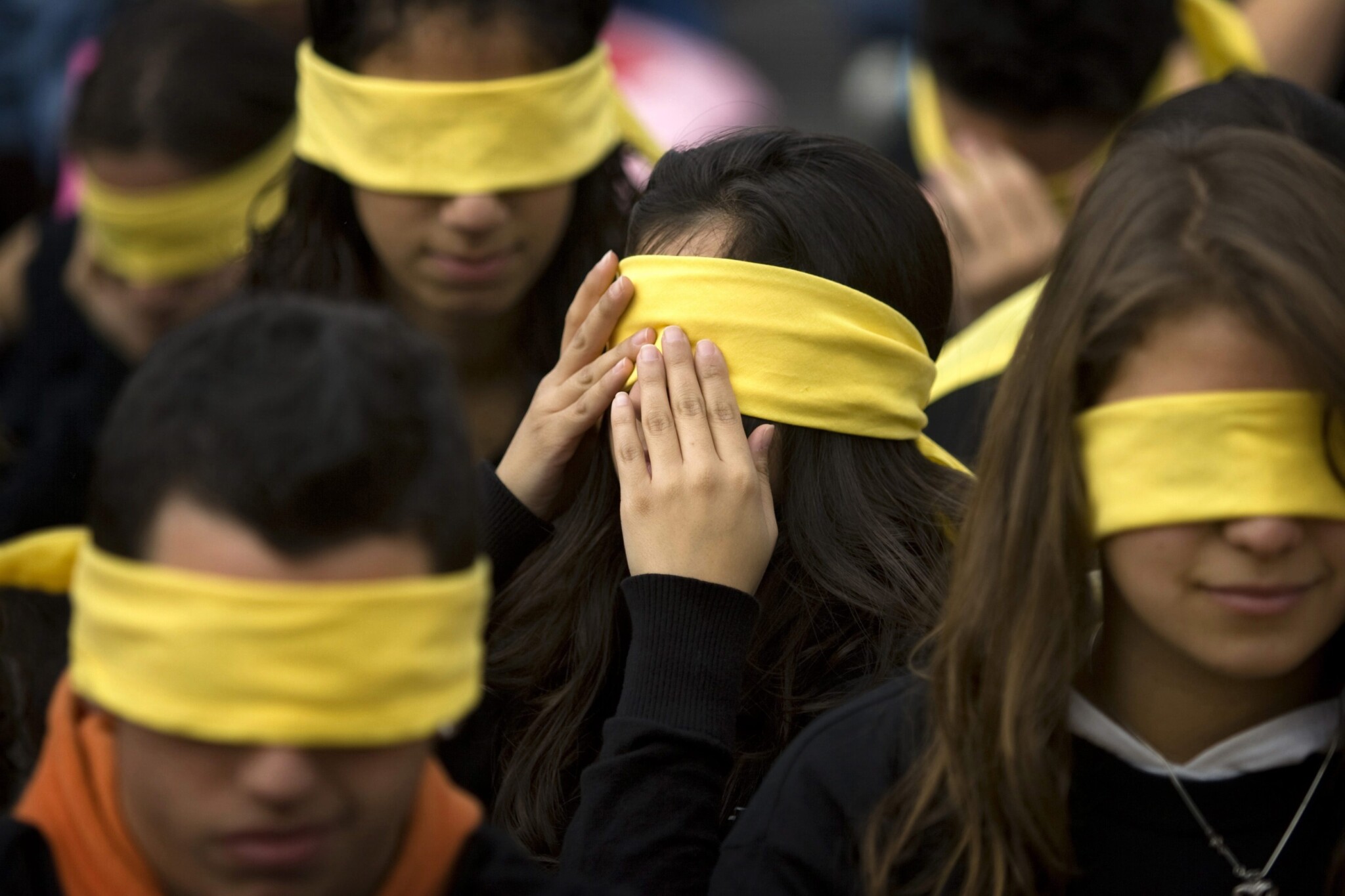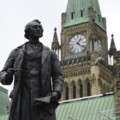In this week’s Hub book review, Patrick Luciani examines Ignorance and Bliss: On Wanting Not to Know (Farrar, Straus and Giroux, 2024), by Mark Lilla, which delves into how the will to ignorance is holding us back, personally and societally.
As an undergraduate, my school’s Latin motto was Rerum Cognoscere Causes, which translates to “To learn the reason why.” In graduate school, it was simply Veritas, meaning “Truth.” Both mottos encapsulate our society’s values and the desire to attain knowledge and truth.
But we also desire not to know. This is the message in a new book by Mark Lilla, a philosophy professor at Columbia University, entitled Ignorance and Bliss: On Wanting Not to Know. Aristotle teaches that we have an innate desire to understand the world and ourselves. Lilla reminds us that we also desire to remain in the dark and that truth must be handled with discretion and care.
Lilla starts his book by reimagining Plato’s allegory of the cave. When a woman brings a man and a child out of the cave’s illusions and darkness into the light of truth and reality, the man returns to the cave to guide another while leaving the child behind. The problem is that the child wants to return to the cave, feeling that living in a world of light and truth is cold and frightening, and he longs to be with his friends.
In other words, ignorance is deeply comforting to the point of bliss. Lilla points out that resisting knowing is an emotional experience beyond intellectual understanding. We possess a will not to know or a will to ignorance that offsets our desire for knowledge. And that will is just as powerful, if not more, than our will to pursue the truth.
We may say we want to know the truth about ourselves, but we tuck in our stomachs as we pass a store window on the street, avoiding the truth that we are putting on weight. This innocent gesture Lilla calls benign self-ignorance. In other matters, do we genuinely want to know what people really think of us at any moment? Only a masochist would say yes. The rest of us prefer to live in a blissful world of ignorance because we would hardly want our moment-to-moment thoughts judged by the world.
Lilla takes us on a tour through Greek mythology, religious texts, and history—in a brief book of 227 pages—of brilliant insights into how the will to ignorance has held us from knowing ourselves. After the Enlightenment of the 17th century, during which Descartes, Galileo, and Isaac Newton liberated Europe from superstition and fear, Romanticism—a reaction against reason and order—trailed quickly. Four centuries after the rise of modern science, we still rely on our emotions and believe rumours overriding our desire for evidence. As Lilla points out, we may aspire to truth, but it remains the faintest of all human passions.
And when the truth is revealed, our motives are often hidden with tragic consequences.
One version of the myth of Prometheus states that he stole fire from Zeus to benefit humankind—a benevolent gesture, no doubt. Another story suggests that he was upset about not receiving the recognition he deserved after supporting Zeus during the Battle of the Titans. Here, Prometheus had questionable motives despite doing the right thing, a trait mirrored in many people’s motivations for speaking the truth.
When Chrystia Freeland, our former finance minister, resigned, she received praise for her integrity and courage in refusing to support a budget filled with fiscal “gimmicks.” We should applaud her for telling the truth. But at what cost? She chose to resign only after learning about her impending replacement. Were her motivations for exposing the truth about the budget noble, or were they merely a means of exacting maximum revenge with little regard for the consequences to her party and leader? Integrity would have compelled her to resign with discretion. She chose otherwise.
Ignorance and Bliss argues that one can trace the history of Western populism back to Paul of Tarsus in his letter to the Corinthians, which initiated the trend to ignorance that began when he wrote that Christ “will destroy the wisdom of the wise and will bring to nothing the wisdom of the prudent…for the wisdom of this world is foolishness to God.” The “holy fool” is a familiar figure held in high esteem in Judaism, Christianity, and Islam, where those who appear mad deliver the word of God. It was Muhammed, an illiterate, whom Allah chose to reveal the Koran.
Even the innocence of children, who are without developed reason and therefore sin, are trusted over the wisdom of philosophers because they aren’t tainted by corruption and deceit. Psychology tells us otherwise. Children can be cruel and capricious, as any parent knows. That was the appeal of Greta Thunberg as a child in her fight to save the environment until we discovered an antisemitic dark side after October 7. Lilla quotes the French writer Michel Houellebecq, who gets closer to the truth when he says: “A seven-year-old child, he’d have cast the first stone.”
Lilla reminds us that “historical nostalgia is a peculiar manifestation of the will to ignorance.” Just as we suffer the loss of our childhoods for simpler times, nations are tormented by the same nostalgia for past glory.
Fascism under Benito Mussolini believed if only Italians could capture the nobility of their Roman heritage, they would again win the respect of other nations. Hitler convinced Germans they could recover their greatness by ridding their land of Jews and recapturing their Aryan past. Vladimir Putin shares a similar dream for Russia and believes the Russian character is morally superior to that of the West. All make the mistake that you can’t return to a past that never existed.
Lilla shows how powerful and destructive the will to ignorance is. His insight is that truth and knowledge demand that we accept the unpleasantness of a messy, real world. It’s no mystery that the child in Plato’s cave wants to return to the comfort of illusions rather than stay in the harsh reality of actual knowledge. For him, the unexamined life is just fine. Many of us would gladly follow as well.











